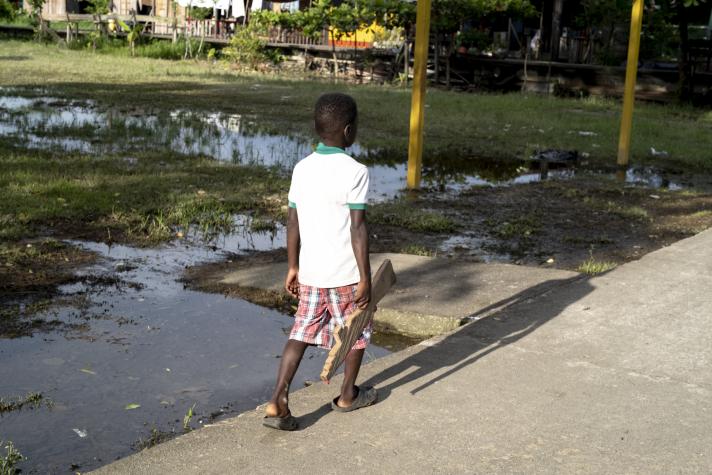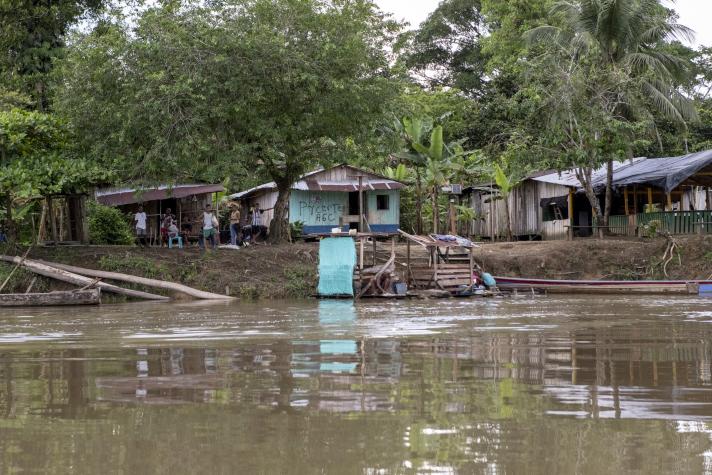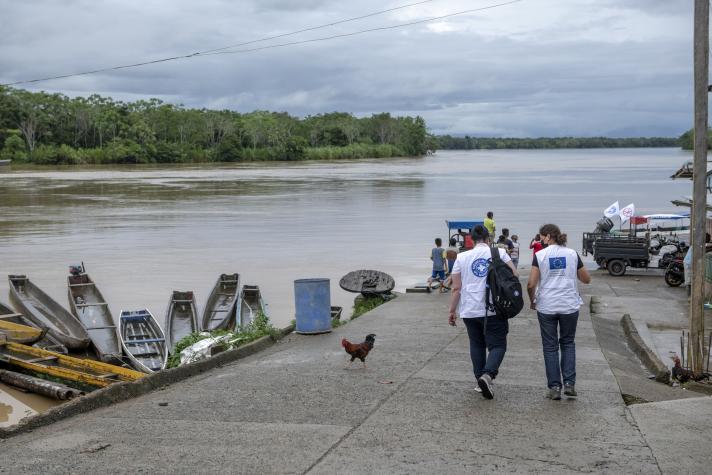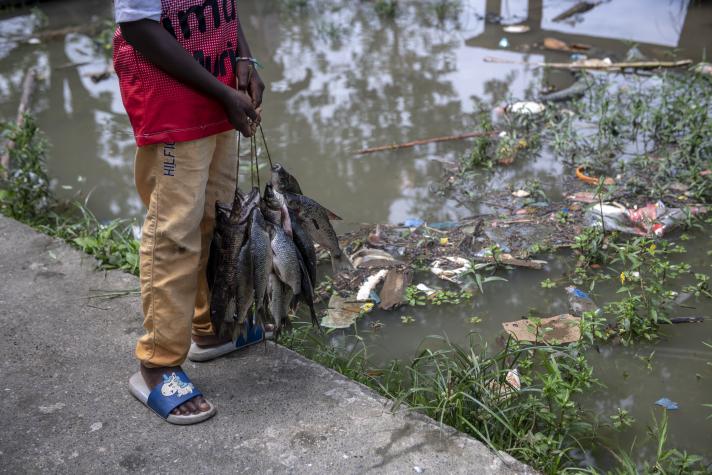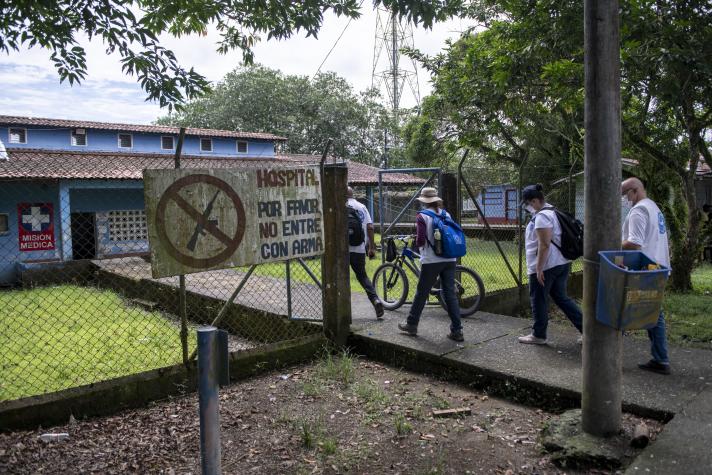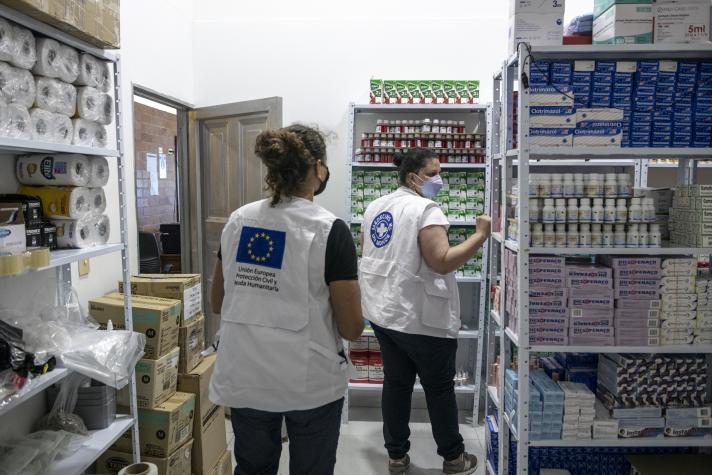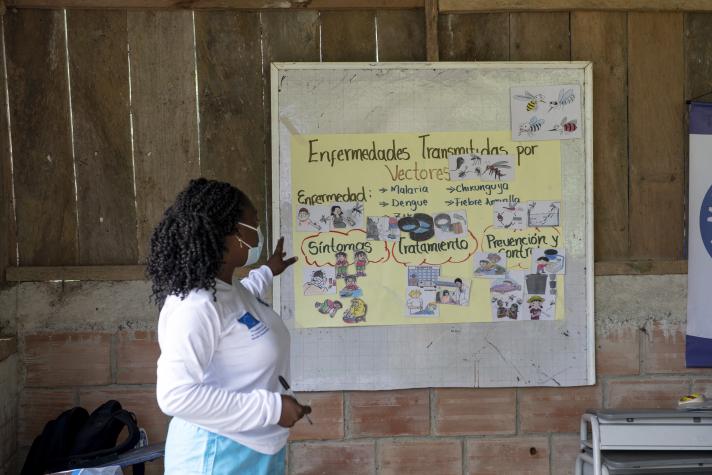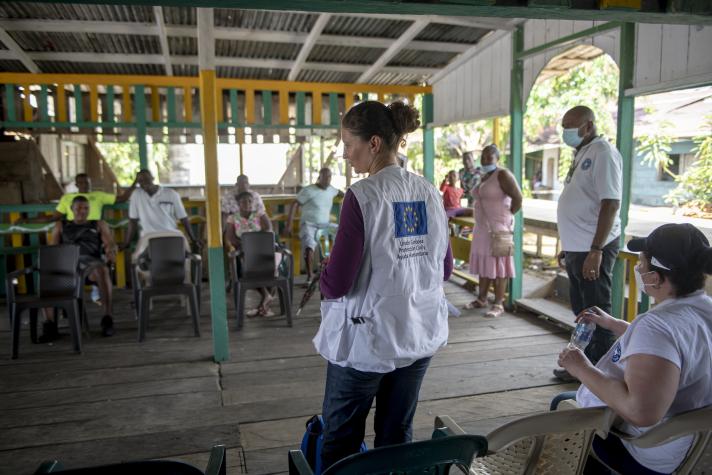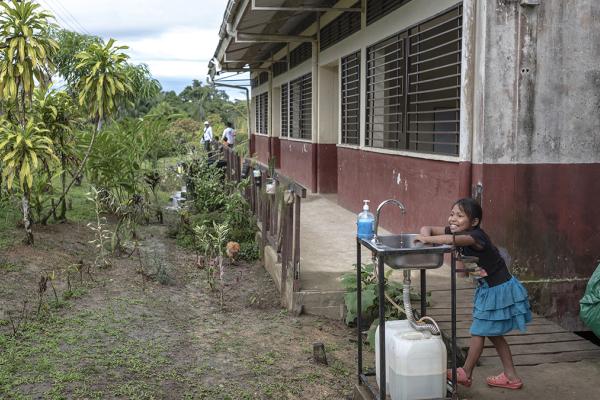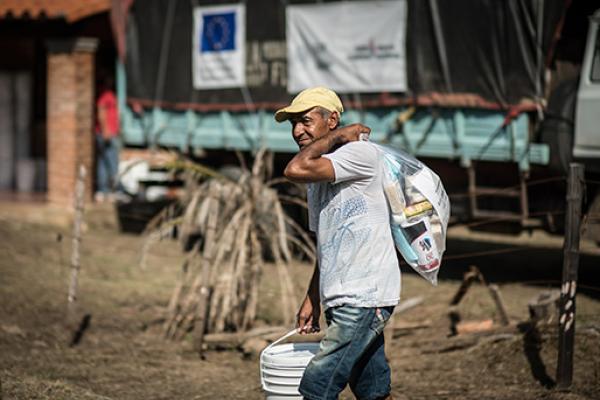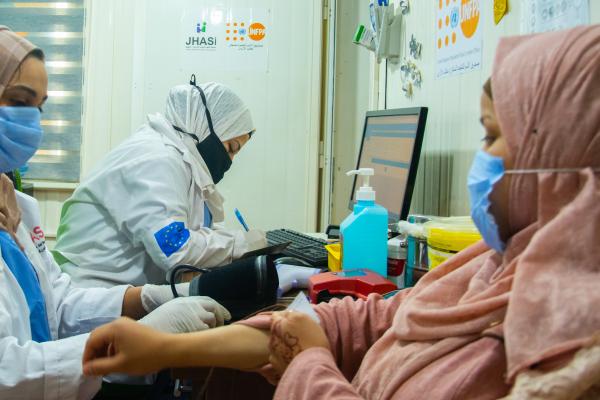Colombia continues to be hostage to a nearly 6-decade internal conflict.
In 2016, the government signed a peace agreement with the largest guerrilla group, the FARC. However, the implementation of the accords did not yield the expected results, and several other armed groups remain active across the country.
Civilians continue to suffer the humanitarian consequences of the ongoing conflicts and other forms of violence. They are systematically targeted, particularly in the Pacific Coast and border regions.
Providing basic healthcare in the most conflict-affected areas of Colombia is proving more challenging by the year since health workers are being systematically targeted. This leaves communities living in areas most subject to violence extremely vulnerable and exposed.
The EU works with an array of humanitarian partners, including Médecins du Monde (MdM) to ensure even the most isolated communities receive basic health care.
Water tanks, mobile medical clinics, and mosquito nets are among the actions that the EU has funded through MdM. In photos, see how we are helping conflict-affected communities in Colombia.
Story by Daniele Pagani, Regional Information Officer for Latin America and the Caribbean, EU Civil Protection and Humanitarian Aid Operations.
Publication date: 06/04/2023

